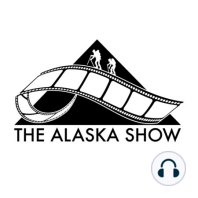65 min listen
Eagles are Terrible Co-Pilots with Stephanie Greer - HAP #34
FromThe Alaska Show
ratings:
Length:
81 minutes
Released:
Mar 5, 2020
Format:
Podcast episode
Description
This week on The Homer Alaska Podcast we sit down with Stephanie Greer, the founder and chief pilot of Beryl Air air taxi service in Homer. She talks to us about her suffocating first few months in Alaska working in a gold mine, how the freedom of air travel lured her into being a pilot, the perils of bear guiding on Katmai, why floatplanes are the best, and the aviation tourism industry in Homer. Alex, JJ, and special guest Ilse discuss an airman at JBER peeing in the office coffeemaker, what to do about people dying to see the "Into the Wild" bus, and events. We also talk to Dr. Neil Schott of South Peninsula Hospital Rehab Clinic about knee injuries! Best of Alaska News and Events (0:39) Dr. Neil Schott on Knee Injuries (14:44) Interview with Stephanie Greer (20:51) Interview Notes Stephanie Greer is the Owner, Founder, and Chief Pilot of Beryl Air, a Part 135 air taxi based in Homer, Alaska. Beryl Markham wrote a book called “West with the Night” that Stephanie loves. She was a pilot, horse trainer, and adventurer in Africa. Great storyteller. First pilot to cross the Atlantic against the tradewinds - East to West. She was born in 1902 and was a counter-cultural figure. West with the Night is a collection of short stories that weaves Beryl’s life together. Stephanie loves the way she weaves stories together and is a “jill-of-all-trades” with different stories from different pursuits. Stephanie was already flying commercially when she first discovered “West with the Night.” She got into flying commercially in her mid-20s. She came up to Alaska as a private pilot to work for her Uncle in his gold mine in the interior. She had stopped aviation by then because she didn’t want to be a “bus driver.” But when she saw small planes working doing different jobs in Alaska she worked on her ratings more to get her commercial license. Alaska really struck Stephanie right away. She was blown away by the stories people have here. It didn’t feel like anywhere else she’d been. Stephanie worked in her uncle’s small plaster/strip-mine. She worked for crew share. The mine was up in Fortymile, close to Chicken. The Fortymile is the Alaska side of the Klondike, where there was the original gold rush. Her Uncle was 10 hours from Tok. They used Cats and heavy equipment to dig up dirt and run it through sluice boxes. Everyone is really remote - maybe 4-5 hours from their neighbor. There are tiny towns like Chicken (population 17) and Boundary (population 6), but if you needed supplies, for example the nearest Napa was in Tok. Her uncle said “redundancy is really important.” You need the part to fix the part to fix the part. Nome is more where they dredge. They used to dredge Fortymile, but it’s mostly strip mines. Stephanie grew up in Minneapolis. That’s where she came from. Being remote in the Alaskan wilderness made her “claustrophobic.” It made her feel trapped. You could get out, but there wasn’t everything at your fingertips including communication and needs. People describe it to her now that they feel that way when her plane leaves when she drops people off. At the end of the first mile she walked out of the mine 27 miles to the road. They couldn’t get a vehicle out, but she couldn’t stay any longer. Her plan was to hitchhike, but when she got to town everyone in Boundary - population 6 - was gone. So she broke into one of the cabins and slept the night. The next morning the mail plane came in - a super cub. She got a ride with him back to town. That plane ride sparked her aviation interest. She saw how an airplane opened up the state. In Bush Alaska it was kind of an unofficial policy to leave your place open and you left dry wood for the next person. Stephanie thinks people are getting more closed off from that. Additionally, it’s harder to hitchhike. She thinks culturally we’re closing off to helping people. Is Alaska’s culture in the past or is it a parallel universe? Can you run the state with podcasters? Stephanie was born and raised
Released:
Mar 5, 2020
Format:
Podcast episode
Titles in the series (62)
History 201 with Clem Tillion - HAP #15: Managing Alaska's fisheries & natural resources and Clem's time in the legislature by The Alaska Show
